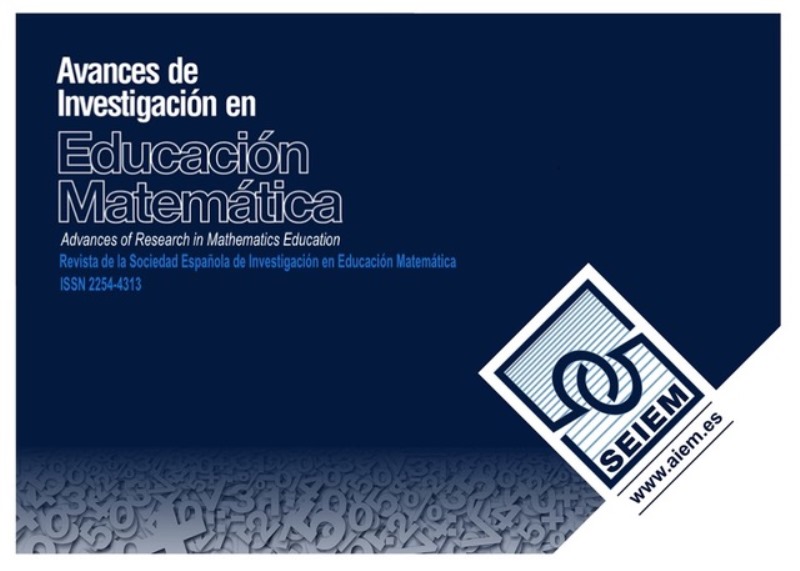Conditions for teaching mathematical modelling
Case studies across educational levels
DOI:
https://doi.org/10.35763/aiem.v0i17.315Keywords:
Mathematical modelling, anthropological theory of the didactic, study and research paths, ecological conditions and restrictionsAbstract
Over the last decades the number of papers analyzing the role of mathematical modelling in teaching and learning processes has increased significantly. The Anthropological Theory of Didactics (ATD) conceives mathematical modelling as a process of construction of praxeologies of growing complexity and places the analysis of the conditions and restrictions that affect its viability at the center of the research activity. We present three modelling processes in Early Childhood, Secondary and University Education, as well as their ecological analyses. We show the existing complexities to make such processes live in the educational institutions as well as their similarities and differences.
Downloads
Downloads
Published
How to Cite
Issue
Section
License
The articles published in this journal are under a license Creative Commons: By 4.0 España from number 21 (2022).
Authors who publish with this journal agree to the following terms:
- Authors retain copyright and keep the acknowledgement of authorship.
- The texts published in this journal are – unless indicated otherwise – covered by the Creative Commons Attribution 4.0 international licence. You may copy, distribute, transmit and adapt the work, provided you attribute it (authorship, journal name, publisher) in the manner specified by the author(s) or licensor(s). The full text of the licence can be consulted here: http://creativecommons.org/licenses/by-nc/4.0.
- Authors are able to enter into separate, additional contractual arrangements for the non-exclusive distribution of the journal's published version of the work (e.g., post it to an institutional repository or publish it in a book), with an acknowledgement of its initial publication in this journal.
- Authors are permitted and encouraged to post their work online (e.g., in institutional repositories or on their website) prior to and during the submission process, as it can lead to productive exchanges, as well as earlier and greater citation of published work (See The Effect of Open Access).









